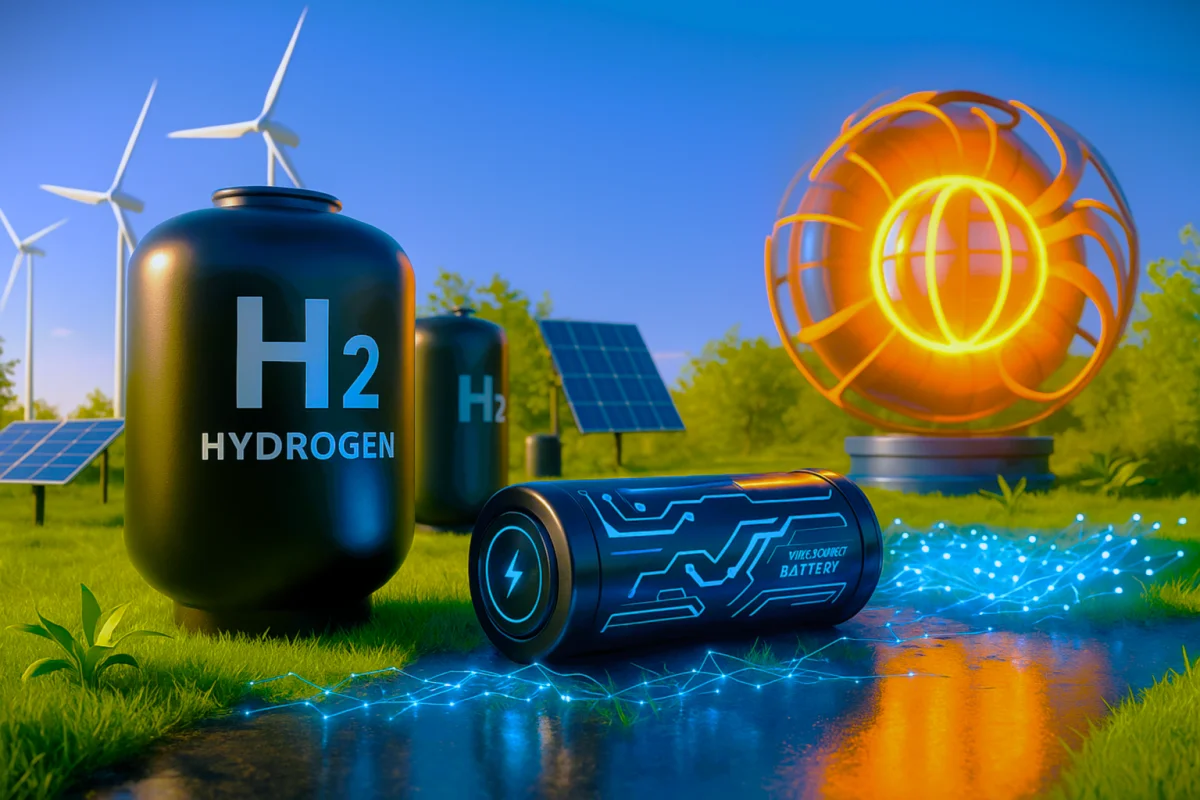The Future of Energy: Hydrogen, Batteries, and Fusion Technology
The future of energy is at a turning point today. The world needs clean, accessible, and efficient sources of energy to reduce dependence on fossil fuels like oil and gas. Here, hydrogen, next-generation batteries, and nuclear fusion technology play a crucial role, potentially forming the foundation of the 21st-century energy revolution.

Hydrogen — The Clean Fuel
Hydrogen is one of the most promising energy sources, as its only byproduct during combustion is water vapor. Hydrogen fuel cells are already used in cars, buses, and even trains. Europe and Japan are leading the way in building hydrogen infrastructure, with fueling stations supporting everyday transport.
However, challenges remain: producing hydrogen often requires significant energy and high-quality infrastructure. Scientists are working on “green hydrogen,” which is produced using renewable energy such as solar and wind.
Batteries — The Future of Energy Storage
Batteries are at the heart of the energy transition. While lithium-ion batteries have dominated in the past, new technologies are emerging. Solid-state batteries are safer, more powerful, and more efficient. They promise faster charging, greater capacity, and longer life cycles.
These batteries will transform not only the electric vehicle industry but also renewable energy storage for solar and wind plants. This means that in the future, integrating renewable energy into everyday life will be far easier.
Fusion Technology — The Holy Grail of Clean Energy
Nuclear fusion is considered one of the greatest hopes for the future of energy. It works on the same principle as the sun’s core — fusing light atoms to produce immense amounts of energy. Unlike nuclear fission, fusion does not generate the same scale of radioactive waste and is far safer.
Major projects such as ITER in France and SPARC in the U.S. are pushing toward making fusion reactors commercially viable. If successful, fusion will provide humanity with virtually unlimited, clean, and safe energy, ending the energy crisis once and for all.
Advantages
- Eco-friendly — Minimal emissions and pollution.
- Energy efficiency — Batteries and fusion provide high levels of efficiency.
- Renewability — Hydrogen and solar power create a sustainable cycle.
- Global development — Leading countries are heavily investing in these technologies.
Challenges
Despite their potential, challenges remain. Hydrogen infrastructure is still expensive, battery production requires rare metals (lithium, cobalt), and fusion technology is still experimental, needing billions in investment.
Conclusion
The future of energy clearly lies in hydrogen, batteries, and fusion technology. These three paths, advancing in parallel, are building a new era of energy where clean and affordable power becomes the foundation of human progress. 👉 Do you think nuclear fusion technology will change the global energy balance within this century?
✍ Article Author
- Registered: 26 July 2025, 15:34




 Silent Cat 🐾
Silent Cat 🐾